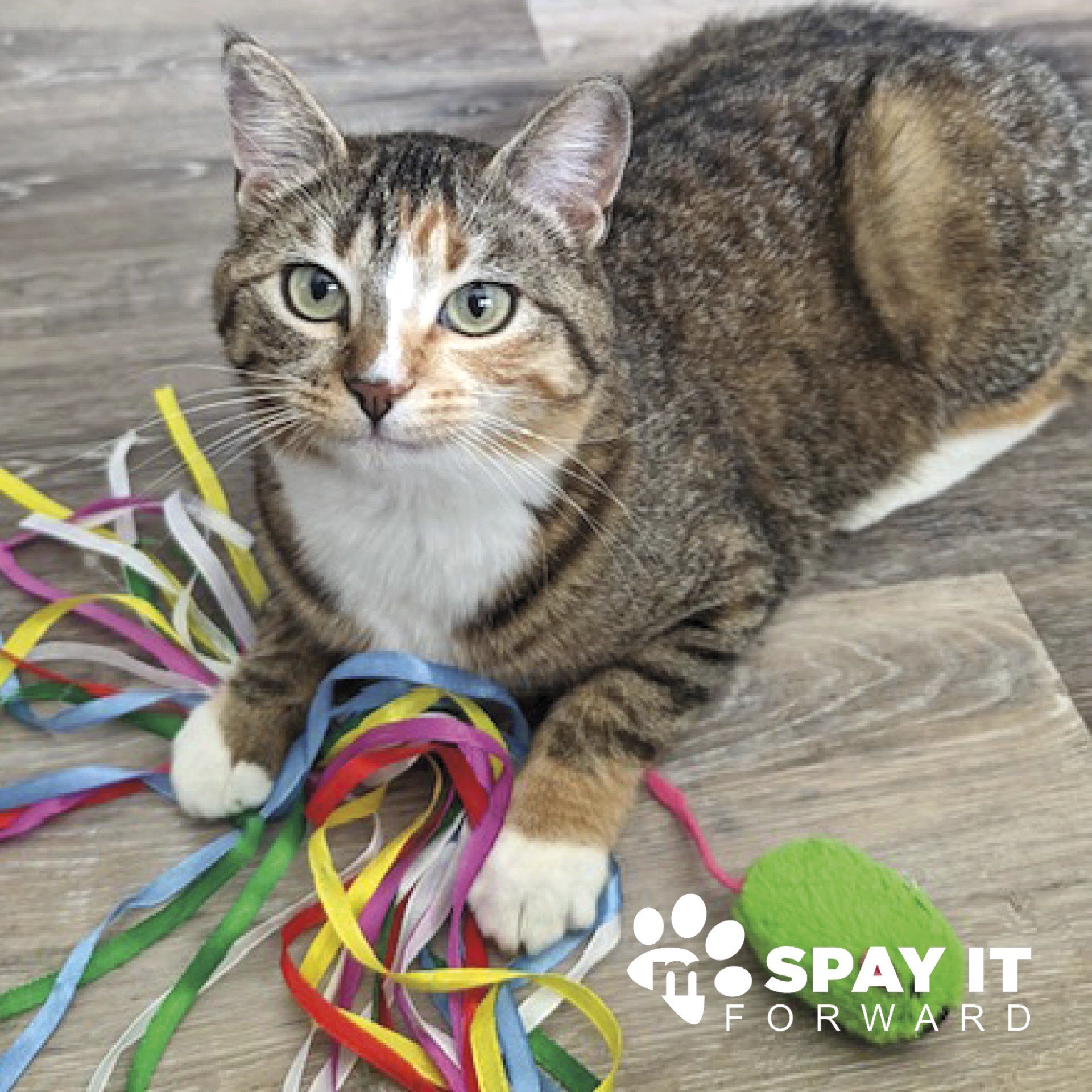Is your cat peeing outside the litter box?
/
By Amy Schneider
(Adapted from: http://www.catsofaustralia.com/cat-spraying-urine.htm)
If you’ve ever seen a cat stand with its rear end facing a vertical surface and vibrate its tail, it’s probably spraying. And if you’ve ever smelled the result – cat urine – you’ll never mistake it… it’s very strong, and very difficult to remove.
Cat spraying, or marking, is a natural part of cat behaviour. Mainly un-neutered
(unfixed) male cats spray, though all cats, even females, could take on this habit.
Spraying is not connected to urinating, and so it normally has nothing to do with litter
box use. In other words, spraying is completely different from peeing. Cats spray to
mark territory with the pheromones in their urine, not because they need to use the
washroom. They may do this for three main reasons.
It’s important to know that nearly all un-neutered male cats will spray as part of their natural behaviour. Female cats in heat may also spray. In both cases, unsterilized cats are acting out their natural territorial behaviour, or are trying to attract the opposite sex.
Cats that are not sterilized have more of the hormones that lead them to this habit. In addition, any cat, sterilized or not, may spray if it is experiencing stress, such as if it is living in crowded conditions with other cats. Other sources of stress may also cause your cat to start spraying. It’s important to discover if the cause could be stress and to try to eliminate it. Common causes of stress for cats include any major chances to its home or daily routine, such as the addition of other pets to the house, the arrival of a baby, a new roommate, or even a new arrangement of your furniture. Finally, another cause of spraying is physical – if you can’t figure out any changes to your cats life that could be causing it stress, you should take him/her to the vet to make sure that a painful urinary tract disease isn’t causing the problem.
What can we do to avoid spraying in the first place? Knowing that spraying usually
occurs in unsterilized cats, the obvious solution is for us to have our cats spayed or
neutered at an early age. Doing so will likely prevent them from ever establishing this behaviour. Even if they have already begun spraying, studies show that most will stop after being sterilized. So, in addition to keeping the population of cats down,
sterilization has the added benefit of reducing this nasty behaviour.
If your cat is already sterilized and continues or begins to spray, there are a few things you can do rather than send him/her packing. There are other products for sale that may dissuade your cat from this behaviour, such as mechanical devices that spray,
release a “friendly smell,” or give them a small shock if they go to the area they have been spraying. In rare cases, if the cause is stress and your doctor feels it necessary, he/she may prescribe anti anxiety pills for your cat. In addition to trying to figure out the cause of the spraying and dealing with it, you will also need to sort out a way to remove the terrible odour of the sprayed urine. There are products for sale that can remove this smell, but you can also try detergents that contain enzymes, and a solution of 1:1 vinegar and water.
Once again, the best method of prevention is to get your cat neutered or sterilized
before he/she reaches maturity. It is never too late to have your cat sterilized, though, so even if the problem has begun, take your cat in for this procedure immediately. If sterilizing does not stop the spraying, or if your cat is spraying even though it has already been sterilized, consider if the cause may be behavioural (stress) or physical. If it’s behavioural, try to remove the stress from your cat’s life. If it may be physical, take your cat to a vet for a check up, and explain the problem. There are several solutions to this problem, and no cat should ever be “evicted” because of it. Everyone deserves a second chance!
(Adapted from: http://www.catsofaustralia.com/cat-spraying-urine.htm)
If you’ve ever seen a cat stand with its rear end facing a vertical surface and vibrate its tail, it’s probably spraying. And if you’ve ever smelled the result – cat urine – you’ll never mistake it… it’s very strong, and very difficult to remove.
Cat spraying, or marking, is a natural part of cat behaviour. Mainly un-neutered
(unfixed) male cats spray, though all cats, even females, could take on this habit.
Spraying is not connected to urinating, and so it normally has nothing to do with litter
box use. In other words, spraying is completely different from peeing. Cats spray to
mark territory with the pheromones in their urine, not because they need to use the
washroom. They may do this for three main reasons.
It’s important to know that nearly all un-neutered male cats will spray as part of their natural behaviour. Female cats in heat may also spray. In both cases, unsterilized cats are acting out their natural territorial behaviour, or are trying to attract the opposite sex.
Cats that are not sterilized have more of the hormones that lead them to this habit. In addition, any cat, sterilized or not, may spray if it is experiencing stress, such as if it is living in crowded conditions with other cats. Other sources of stress may also cause your cat to start spraying. It’s important to discover if the cause could be stress and to try to eliminate it. Common causes of stress for cats include any major chances to its home or daily routine, such as the addition of other pets to the house, the arrival of a baby, a new roommate, or even a new arrangement of your furniture. Finally, another cause of spraying is physical – if you can’t figure out any changes to your cats life that could be causing it stress, you should take him/her to the vet to make sure that a painful urinary tract disease isn’t causing the problem.
What can we do to avoid spraying in the first place? Knowing that spraying usually
occurs in unsterilized cats, the obvious solution is for us to have our cats spayed or
neutered at an early age. Doing so will likely prevent them from ever establishing this behaviour. Even if they have already begun spraying, studies show that most will stop after being sterilized. So, in addition to keeping the population of cats down,
sterilization has the added benefit of reducing this nasty behaviour.
If your cat is already sterilized and continues or begins to spray, there are a few things you can do rather than send him/her packing. There are other products for sale that may dissuade your cat from this behaviour, such as mechanical devices that spray,
release a “friendly smell,” or give them a small shock if they go to the area they have been spraying. In rare cases, if the cause is stress and your doctor feels it necessary, he/she may prescribe anti anxiety pills for your cat. In addition to trying to figure out the cause of the spraying and dealing with it, you will also need to sort out a way to remove the terrible odour of the sprayed urine. There are products for sale that can remove this smell, but you can also try detergents that contain enzymes, and a solution of 1:1 vinegar and water.
Once again, the best method of prevention is to get your cat neutered or sterilized
before he/she reaches maturity. It is never too late to have your cat sterilized, though, so even if the problem has begun, take your cat in for this procedure immediately. If sterilizing does not stop the spraying, or if your cat is spraying even though it has already been sterilized, consider if the cause may be behavioural (stress) or physical. If it’s behavioural, try to remove the stress from your cat’s life. If it may be physical, take your cat to a vet for a check up, and explain the problem. There are several solutions to this problem, and no cat should ever be “evicted” because of it. Everyone deserves a second chance!










